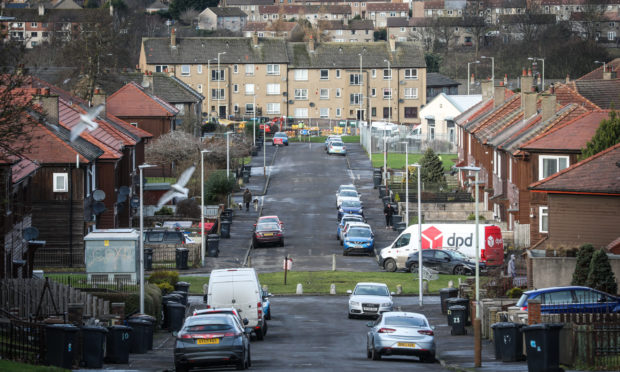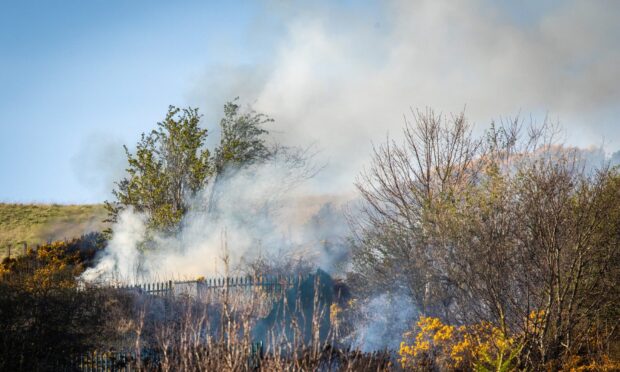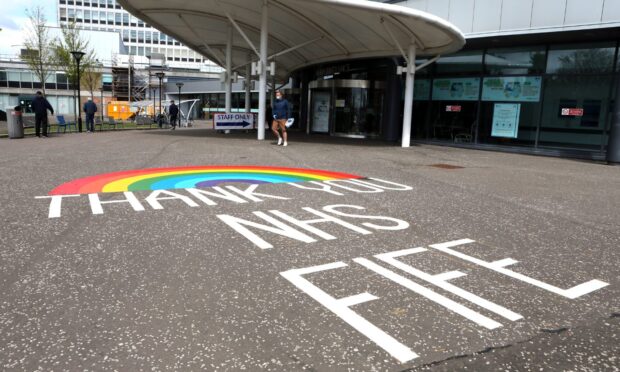Data released for the first time shows people living in the most deprived areas of Scotland are 2.3 times more likely to die of Covid-19 than those in the least deprived.
The National Records of Scotland (NRS) has provided figures showing the impact deprivation has on the number of Covid-19 deaths up to May 10.
Pressure has been mounting in recent weeks for data to be released on how the virus is affecting the most deprived communities in Scotland.
Our own analysis of the weekly death statistics released by the National Records of Scotland (NRS), alongside data from the Scottish Index of Multiple Deprivation, has shown that areas with greater levels of deprivation appear to have higher death rates.
But the new figures released by NRS on Wednesday confirm for the first time that those living in the most deprived areas were 2.3 times more likely to die with Covid-19 than those in the least deprived.
NRS has also released data for the first time on pre-existing conditions, showing that most people who died from the virus had at least one, with Alzheimer’s disease the most common condition, accounting for 31% of Covid-19 deaths, followed by coronary heart disease (13%).
The data show that, as of May 10, there has been a total of 3,213 deaths registered in Scotland where coronavirus was mentioned on the death certificate.
The total number of Covid-19 deaths registered in the week up to May 10 was 415, a drop of 110 from the previous week and the second weekly reduction in a row.
Meanwhile, the proportion of Covid-19 deaths registered that took place in care homes has risen over time, but has dropped back slightly in the latest week to represent 57% of all deaths as a result of the virus.
The number of deaths in care homes fell for a second week, by 76 to 238.
Care home deaths accounted for half of all Covid-19 deaths across the NHS Grampian health board area, behind NHS Lothian and NHS Forth Valley.
A total of 93 people died in care homes across the Grampian region, out of a total of 187 since the pandemic began.
Meanwhile, in Highland, 31 people out of 97 died in care homes (32%) and in Shetland five out of seven deaths were in care homes.
There have been no care home deaths in Orkney and no deaths at all from coronavirus in the Western Isles.
Across Tayside, a total of 45% of Covid-19 deaths were in care homes, with 105 out of 232 people dying in these settings.
Meanwhile, across Fife, 59 people have died in care homes, from an overall figure of 162 since the pandemic began – accounting for 36% of Covid-19 deaths.

Speaking during First Minister’s Questions, Nicola Sturgeon said “no trend in stats” could comfort the many people who have lost loved ones but added that the figures showed a “further and sustained sense of hope”.
She added: “That doesn’t mean we can relax yet and the reproduction number is still higher than we would like.”
Pete Whitehouse, Director of statistical services, said: “Every death from this virus is a tragedy.
“These statistics, alongside the other important evidence being made available by the Scottish Government and Health Protection Scotland (HPS), are valuable to the understanding of the progress and impact of the Covid-19 virus across Scotland.
“These latest figures show that for the second week running since reporting of registered deaths relating to Covid-19 began there has been a reduction in Covid-19 related deaths.
Every death from this virus is a tragedy.”
Pete Whitehouse, director of statistical services at NRS.
“We have also published, for the first time today, analyses of how the mortality rate related to Covid-19 varies by deprivation and across urban and rural areas of Scotland.
“Our aim is to ensure that our statistical publication provides information that is as useful as possible and adds value to the understanding of how the virus is spreading throughout the country.
“We will continue to review and develop these statistics as new information is made available.”










